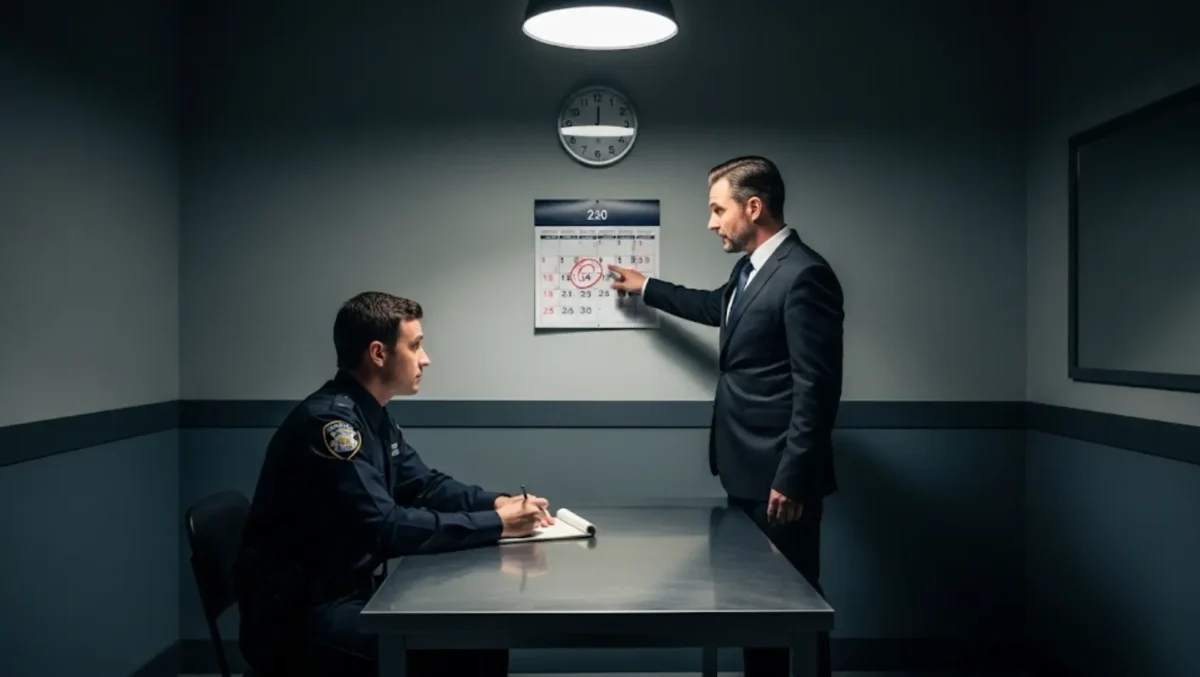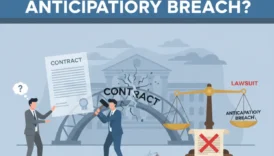What Is an Alibi in Criminal Law?

An alibi is one of the most common and important defenses in criminal law. It is used when a defendant claims they were somewhere else at the time a crime occurred. By showing evidence of their presence elsewhere, the defendant aims to prove they could not have committed the alleged offense.
Simple Definition
An alibi is a defense in criminal law where the accused provides proof that they were in a different location when the crime took place. If the alibi is credible and supported by evidence, it can prevent a conviction by raising reasonable doubt about the defendant’s involvement.
Real-Life Simple Examples
- Surveillance footage: Video shows the defendant shopping at a store at the time of the crime.
- Witness testimony: A co-worker confirms the defendant was at work during the incident.
- Digital evidence: Phone GPS records place the defendant in another city.
- Receipts and documents: Credit card records prove the defendant was in a different location.
Importance of the Term
- Protects the innocent: Provides a clear way to demonstrate non-involvement in a crime.
- Builds reasonable doubt: Weakens the prosecution’s case if the alibi is credible.
- Relies on evidence: Encourages collection and preservation of records like receipts, logs, or digital data.
- Legal strategy: Alibis often form a central defense strategy in criminal trials.
Comparison (Alibi vs. Other Defenses)
| Factor | Alibi Defense | Other Defenses |
|---|---|---|
| Claim | Defendant was elsewhere | Defendant admits presence but argues justification (e.g., self-defense) |
| Focus | Location and timing | Motive, intent, or legal justification |
| Evidence | Witnesses, records, digital proof | Legal arguments or mitigating factors |
FAQ
1) Is an alibi always accepted in court?
Not automatically. It must be credible and supported by evidence.
2) Can family members testify as alibi witnesses?
Yes, but their testimony may be scrutinized more closely for bias.
3) Can digital records serve as an alibi?
Yes. GPS data, phone records, or time-stamped emails can support an alibi.
4) What happens if an alibi is false?
Presenting a false alibi can damage credibility and may even lead to additional charges.
5) Does the prosecution have to disprove an alibi?
Yes. Once an alibi is presented, prosecutors must show it is unreliable or insufficient.
Closing
An alibi is a crucial defense in criminal law that can exonerate the accused if proven credible. By demonstrating the impossibility of being at the crime scene, an alibi can raise reasonable doubt and protect innocent individuals from wrongful convictions.






